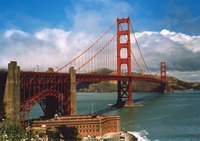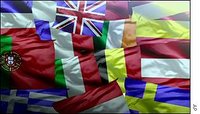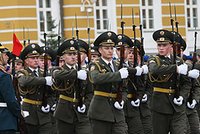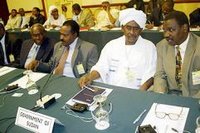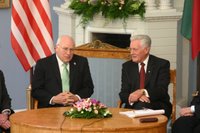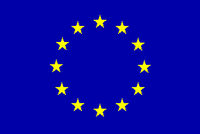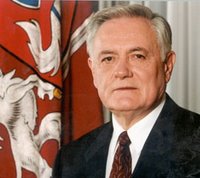
British politics these days is all about when Tony Blair will step down and hand over 10 Downing Street to his long-time rival Gordon Brown.
At some time he is likely to do that. And the evolving conventional wisdom in London - for whatever that is worth - is that it will happen within a year from now.
But no one really knows. It is highly likely that he hasn't decided himself but is thinking of different options. And it is highly unlikely that he has given a firm time for the hand-over to anyone.
So it's really all speculation at this stage.
But that speculation is itself is creating a new situation. The Labour party is seen as increasingly divided at a time when the Conservatives are coming back. And Tony Blair is starting to look like something of a dead duck.
His political energy looks undiminshed to an outside observer - but his political powers are very clearly in decline.
Many are making comparisons to the situation when Margaret Thatcher was forced from her leadership position in 1990. It was, as Gordon Brown pointed out last week in a comment that was widely interpreted as a push for an early transition, an "unstable, disorderly and undignified" exit, which come to haunt the Conservative party for many years.
The two great questions hanging in the air is first what the Blair era has really achieved and second what a Brown policy would really mean.
Margaret Thatcher left after eleven years of solid achievements. She wasn't my cup of tea in every respect, but that she took Britain from decline to a new start is today obvious to all. She made Britain into a robustly competitive nation.
Tony Blairs greatness as leader was that he accepted the Thatcher revolution and carried it into the Labour party, thus creating New Labour. If there was a Blair revolution, it was primarily a follow-up. Britain - well, overall - stayed on track.
Where Gordon Brown stands on the different issues is less clear to me.
He has presided over a rather solid expansion of the public sector and a stealth increase in taxation. That's solidly Old Labour. But he often preaches the virtues of deregulation and open markets. That's obviously New Labour.
And on Europe it's all very unclear. He's a man who loves to go to Washington and buy the latest books. I'm all in favour of that. But he's also a man that only occasionally turns up at European Union meetings, and then far more to lecture than to listen. That doesn't give influence.
The centre of gravity in the Union in terms of foreign affairs has already moved from London to Berlin. The German presidency during the first half of 2007 will obviously be of key importance - it's towards the end of that we will also see a new President of France.
But without an active approach by London not very much can be done anyhow.
There are certainly big European issues that need to be addressed. The important debate on future enlargement. The necessity of getting some sort of treaty on institutional reform. The commitment to review the budget. The need to deepen the single market.
Is there a Brown policy that differs from the Blair one on issues like these?
It will be important to watch the British transition in order to get some sort of view of where its politics might be heading.
There is still time - perhaps until his 10th anniversary of entering Downing Street a year from now - left of Blair.
There are some important issues he needs to tackle. A solid energy policy - most probably a new British push for nuclear power. The continued wrangling with Iran. And reform of the pension system.
But then then there will probably be a few Brown years. Policies? Well, that's the question.
After that, it looks increasingly likely that there will be the Cameron years.
 It was probably a bigger step than many thought when the Patriarch of the Orthodox Church of Russia visted Latvia during the last few days.
It was probably a bigger step than many thought when the Patriarch of the Orthodox Church of Russia visted Latvia during the last few days.






